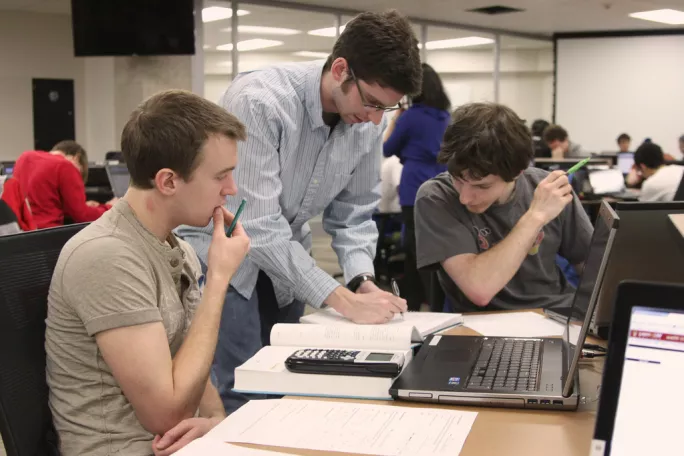Five rules that can make group work successful
If you’re having problems with group work, don’t simply blame the strategy: it might be your fault.
That’s the verdict of James Mannion, lead professional for science at Varndean School in Brighton, and Neil Mercer, professor of education and vice-president of Hughes Hall, University of Cambridge.
Writing in the 6 February issue of TES, they explain that group work has had a highly public bashing that it does not deserve.
“Clearly, these [negative] views are valid because they are rooted in experience,” they write. “But should ideas be dismissed simply because some teachers have difficulty making them work? Is group work really a waste of time? Or have we simply misunderstood what it is and how it should look in the classroom?”
Considering the wealth of research looking at group work and the ways to do it properly, you’d think misunderstandings were unlikely, but Mannion and Mercer say those findings have not reached the classroom.
“We need to recognise that group work may fail simply because it is badly executed: the research hasn’t filtered down so staff and students don’t know how to do it properly,” they write. “Some people take immediate exception to this suggestion, assuming that it apportions blame to the teacher. But there is an alternative explanation: teachers and students just haven’t been taught how to make it work.”
And they believe that putting that right is relatively simple.
“Group work in the classroom and elsewhere commonly goes wrong because the participants are following inappropriate ground rules,” they write. “These include keeping good ideas to themselves, letting the most confident speakers dominate, never disagreeing with friends and never listening to opposing views. One of the first things you should do as a teacher is to identify the inappropriate patterns of behaviour being followed and discuss them with students.”
Instead of these inappropriate rules, the pair say new rules should be set to ensure successful group work. However there are two key points to consider in this:
1) Different tasks and different contexts require different ground rules
2) It is important to include the students in the process of generating and agreeing ground rules.
That said, below are five examples of rules that can make group work more successful:
- Everyone should contribute and take turns to speak.
- All ideas should be shared and considered.
- Ideas should be justified with reasons.
- Challenges are encouraged but students must disagree with the point, not the person.
- Try to reach agreement, don’t just agree to differ.
Read the full article in 6 February edition of TES on your tablet or phone or by downloading the TES Reader app for Android or iOS. Or pick it up at all good newsagents.
Keep reading for just £1 per month
You've reached your limit of free articles this month. Subscribe for £1 per month for three months and get:
- Unlimited access to all Tes magazine content
- Exclusive subscriber-only stories
- Award-winning email newsletters




